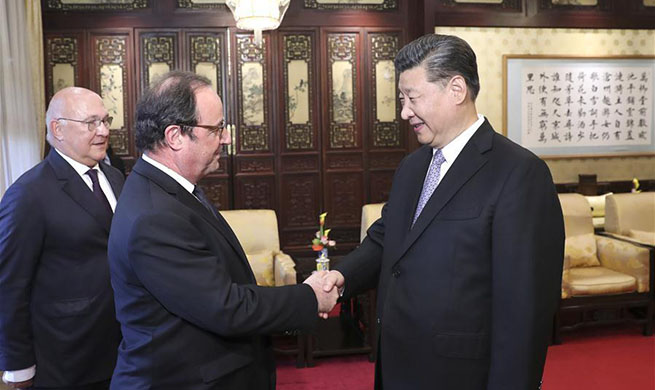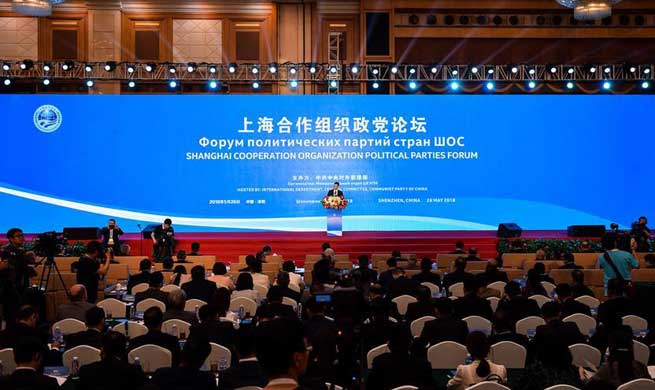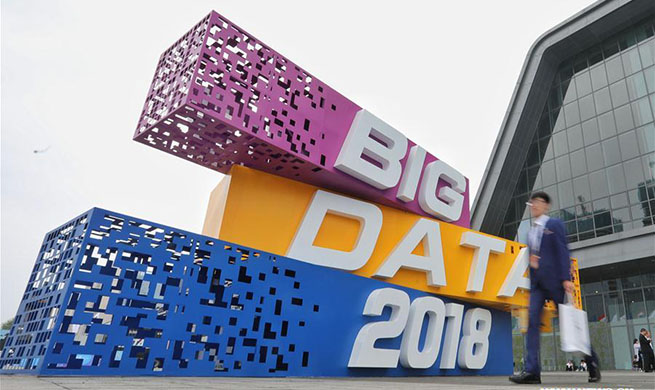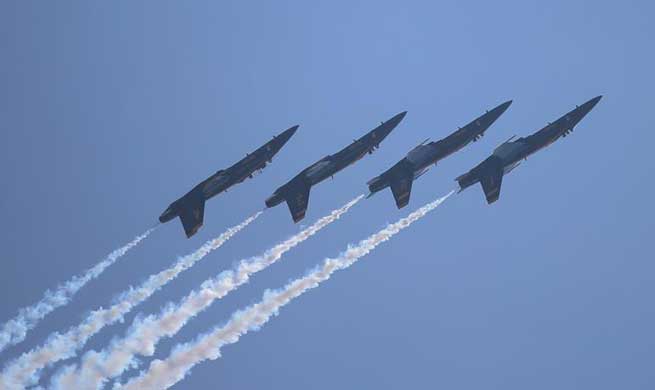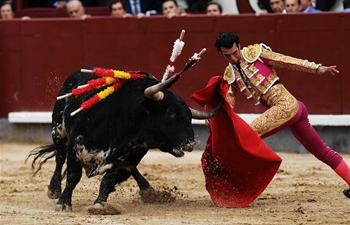DUBAI, May 26 (Xinhua) -- The United Arab Emirates (UAE) has stepped up its efforts to position itself as a center of banking and financial technology innovation to take advantage of the China-proposed Belt and Road (B&R) Initiative.
The efforts are led by the Abu Dhabi Global Market (ADGM) and the Dubai International Financial Center (DIFC), which have increased financial cooperation with international financial institutions and centers, including those from China.
The Financial Services Regulatory Authority of ADGM, the 2013-founded financial free zone in the UAE capital Abu Dhabi, has signed a Memorandum of Understanding with the Astana International Financial Centre of Kazakhstan, at the annual forum of the International Organisation of Securities Commissions in Budapest, Hungary.
Both the UAE and Kazakhstan are supporters of China's Belt and Road Initiative, or the Silk Road Economic Belt and the 21st Century Maritime Silk Road, which aims at building a trade and infrastructure network connecting Asia with Europe and Africa along the ancient trade routes of the Silk Road.
On May 11, ADGM launched its first overseas representative office in Beijing.
"One of our key commitments will be working with the relevant authorities in China and Abu Dhabi to support the RMB internationalization strategy and build up an offshore RMB center serving the Middle East and North Africa region via ADGM," ADGM chairperson Ahmed Al Sayegh said.
The public "will hear more from the ADGM in relation to Chinese banking within the next two months," Richard Teng, CEO of ADGM Financial Services Regulatory Authority, told Xinhua last month at the Annual Investment Meeting in Dubai.
Teng, former chief regulatory officer of the Singapore Exchange, travels regularly to China to attract financial firms to Abu Dhabi.
Firms licensed in the UAE free zone enjoy 100 percent foreign ownership, free capital repatriation and an internationally accepted regulatory environment.
In 2017, Dubai's DIFC said it continued to see growth from the registered Chinese financial institutions, which accounted for 22 percent of the total assets booked in the DIFC as at the end of the third quarter 2017.
The total value of these assets reached 33.4 billion U.S. dollars, a 30.5 percent increase from 25.6 billion U. S. dollars reported in the end of 2016.
Leading Chinese banks, including the Industrial and Commercial Bank of China, China Construction Bank, Agricultural Bank of China and Bank of China, run major regional branches in the 120-acre DIFC district.
DIFC Authority's CEO Arif Amiri said that two more Chinese lenders have conducted serious talks with it to establish offices in the DIFC.
Inspired by the rapid rise of financial technology, Internet of things, and artificial intelligence technology in East Asia, DIFC has also positioned itself as an incubator for global financial technology startups, when it founded the FinTech Hive back in 2017.
According to global consultancy Ernst and Young, not a single Arab country was in 2017 among the top 20 countries in relation to FinTech adoption, a ranking led by China.
The DIFC aims to fill this digital gap through the digital ecosystem FinTech Hive, which was launched a year ago in partnership with global consultancy Accenture.
Startups that set up shops in the hub have so far raised more than 1.07 billion U.S. dollars in venture financing after participating in the accelerator programs, according to the DIFC.
Singapore's digital wealth services firm WeInvest, for example, was one of the finalists in the 2017 program and managed through the DIFC FinTech accelerator to expand its footprint in the Middle East.
The FinTech Hive said in a statement that it started on May 20 accepting applications for its new 2018 program.
"By connecting innovators in financial service technology with the banks, financial institutions and service providers, we are providing a world-class platform to develop solutions to meet specific needs and challenges in the region," said Raja Al Mazrouei, executive vice president of FinTech Hive at DIFC.
The UAE has also expanded its role as one of the leading hubs for Islamic finance, an alternative way of banking and insurance based on Islamic law, or Sharia, which prohibits interest.
Earlier in the month, Bank of London and the Middle East (BLME), a major Islamic financial institution in Britain, announced the opening of a branch in DIFC.
On May 16, UAE's Islamic bank Noor Bank listed an Islamic bond of 500 million U.S. dollars, also known as Sukuk, on Nasdaq Dubai, a licensed DIFC market.
The listing underlined Dubai's role as the largest global center for Sukuk listings by nominal value, which currently totals 59.72 billion U.S. dollars from issuers from across the globe.
According to UAE Ministry of Economy and the Dubai Islamic Economy Development Center, Sharia-compliant assets worldwide could reach an estimated 3.3 trillion U. S. dollars by 2021.










